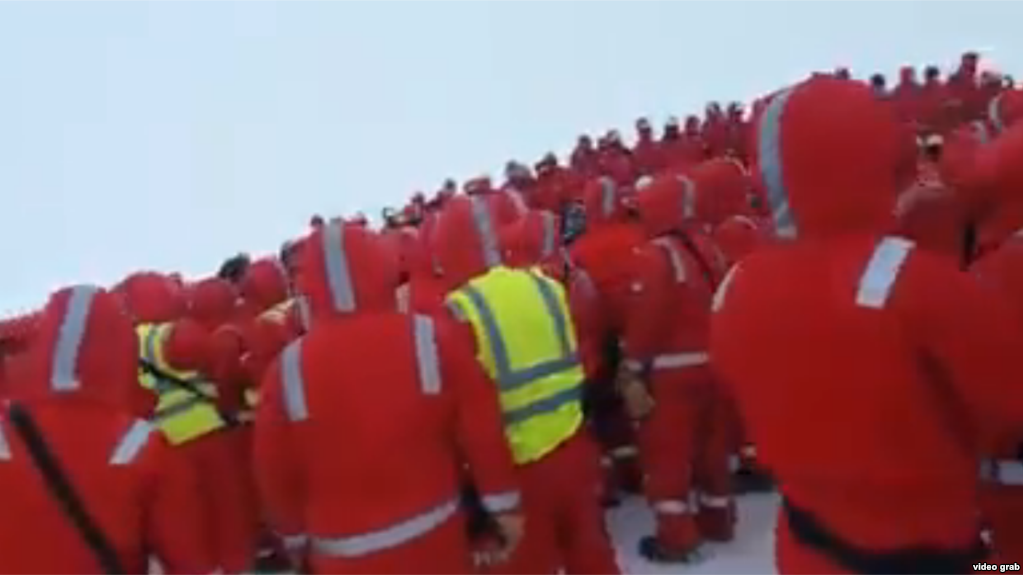On March 19, Nursultan Nazarbayev, the president of Kazakhstan, stepped down after nearly 29 years in power. Nazarbayev’s regime was marked by allegations of suppression of the opposition and attacks on trade union organizing. Even the country enters a new phase, questions remain about as many as 20 workers who were arrested in the Zhanaozen region in February following protests by trade unions. The workers had raised a number of demands, including an increase in wages up to 150,000 tenge ($395) and removal of curbs imposed by state authorities on union activities.
Zhanaozen, which is known for its oil industry, was the site of a massacre in 2011 when 14 protesters were killed in the aftermath of a strike by oil workers.
Unions in Kazakhstan have faced continuous persecution over the past few years. An international union mission in November 2018 pointed out that there was a rise in the targeting of unions. In January 2019, Human Rights Watch noted that despite the right to strike being guaranteed in the constitution of Kazakhstan and the Labor Code, the workers were prohibited from going on strike.
A key moment in the rise in such persecution was the passing of the Criminal Code in 2014, which opened up the possibility of “actions provoking continued participation in a strike” being declared illegal by the court. Those accused in such cases risked a prison term of up to three years. Observers pointed out that “the International Labour Organization has determined that criminal sanctions for those who participate in peaceful strikes is an excessive punishment”.
In the aftermath of these changes to the law, the attacks on unions intensified. IndustriAll reported that recently, Erlan Baltabai, chair of the Fuel and Energy Workers’ Union (FEWU), has been under the scanner. The charge levelled against him is embezzlement of union funds, an accusation that has been levelled against many other union leaders too. Many of his relatives have been questioned too. Dmitry Seniyavskiy, also of the FEWU, was attacked brutally in November 2018, IndustriAll reported.
Earlier, the Confederation of Independent Trade Unions (KNPK) was dissolved. A number of union leaders were arrested. Amin Yeleusinov, former chair of the trade union of Oil Construction Company (OCC), was arrested and sentenced to two years of jail in May 2017 on charges of embezzlement of union funds and refusal to follow police orders. He was released last year. Similarly, Nurbek Kushakbayev, deputy chair of the KNPRK, was arrested in 2017 and released around the same time as Yeleusinov.
According to Valter Sanches the general secretary of IndustriALL “There needs to be an immediate stop to the repression of unions and union activists. IndustriALL is calling on Kazakh authorities to release 19 activists arrested for participating in peaceful rallies, and to start a social dialogue with workers and the unemployed.





